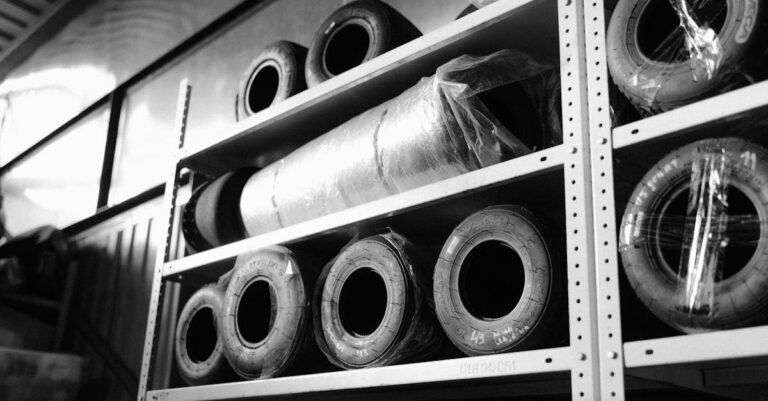Table of Contents
- Compact Cars: The Ultimate Pros And Cons Guide
- What Exactly Defines a Compact Car?
- The Sunny Side: Advantages of Driving Compact
- The Flip Side: Disadvantages to Consider
- Who is the Ideal Compact Car Driver?
- Making the Choice: Is a Compact Car Right for You?
- Conclusion: Weighing the Scales
- Frequently Asked Questions (FAQs)
Compact Cars: The Ultimate Pros And Cons Guide
Thinking about getting a new set of wheels? Maybe something nimble, easy on the wallet, and perfect for zipping around town? If so, you’ve probably considered a compact car. These little dynamos are everywhere, from bustling city streets to suburban driveways. But are they the right choice for you? Like choosing between pizza toppings (a serious decision, I know!), picking a car involves weighing the good against the not-so-good. Compact cars are fantastic for many, but they aren’t a one-size-fits-all solution. Let’s dive deep into the world of compact cars, exploring every nook and cranny to help you decide if one deserves a spot in your garage.
What Exactly Defines a Compact Car?
Before we jump into the juicy pros and cons, let’s make sure we’re all on the same page. What exactly makes a car “compact”? It’s not just about being small, though that’s a big part of it! Official classifications can vary slightly by region (like the EPA in the US), but generally, it boils down to size and interior volume.
Size and Classification
Think of car sizes like t-shirt sizes: subcompact (XS), compact (S), mid-size (M), full-size (L). Compact cars typically fall between subcompacts and mid-size sedans. In official terms, like those used by the Environmental Protection Agency (EPA) in the United States, compact cars usually have a combined passenger and cargo volume of 100 to 109 cubic feet. They are often available as sedans (with a separate trunk) or hatchbacks (where the rear opens up like a hatch, offering more versatile cargo space). Their exterior dimensions make them noticeably smaller than their mid-size siblings, which is key to many of their advantages… and disadvantages.
Common Examples
You know these names! Think of perennial favorites like the Honda Civic, Toyota Corolla, Hyundai Elantra, Mazda3, Volkswagen Jetta (or Golf, its hatchback cousin), and Subaru Impreza. These models have practically defined the compact segment for decades, offering a balance of features, efficiency, and value that keeps buyers coming back. They represent the heartland of the compact car market.
The Sunny Side: Advantages of Driving Compact
Alright, let’s talk about why so many people love their compact cars. There are some seriously compelling reasons to go small(er)!
Advantage 1: Fuel Efficiency That Saves Your Wallet
This is often the headline act for compact cars. In an age of fluctuating gas prices (when are they not fluctuating?), getting more miles per gallon (MPG) is a huge plus. Compact cars are generally champions of fuel economy compared to larger vehicles. Driving a compact often means fewer trips to the pump and more money left over for… well, anything else! It’s like getting a discount on every mile you drive.
Why Are They So Efficient?
It’s simple physics, really. Compact cars weigh less than larger cars. Less weight means the engine doesn’t have to work as hard to get the car moving and keep it cruising. Think about carrying a backpack versus a heavy suitcase – which one tires you out faster? Same idea. They also typically have smaller, more efficient engines (often four-cylinders) designed specifically to sip fuel rather than guzzle it. Aerodynamics can also play a role; a smaller frontal area can mean less wind resistance.
Advantage 2: Maneuverability and Parking Paradise
Ever tried to parallel park a giant SUV in a crowded city street? It can feel like trying to thread a needle wearing boxing gloves. This is where compact cars truly shine. Their smaller dimensions and tighter turning radius make them incredibly easy to maneuver. Zipping through congested traffic? Check. Nailing that tight parallel parking spot on the first try? Double check. Navigating narrow laneways or packed parking garages becomes significantly less stressful. It’s like having a cheat code for urban driving.
Navigating Tight Spots
Seriously, the ease of parking is a game-changer for city dwellers or anyone who frequently deals with limited parking. That spot everyone else deemed “too small”? It might just be perfect for your compact. U-turns that would require a three-point turn (or more!) in a larger vehicle can often be done in one smooth motion. This agility translates to a less frustrating driving experience day in and day out.
Advantage 3: Affordability – Upfront and Ongoing
Let’s talk money. Compact cars are generally friendlier to your bank account right from the start and throughout their lifespan.
Lower Purchase Price
Compared to mid-size sedans, SUVs, or trucks, compact cars typically have a lower Manufacturer’s Suggested Retail Price (MSRP). Less material, smaller engines, and often slightly fewer standard features (though this gap is narrowing!) contribute to a lower sticker price. This makes them more accessible for first-time buyers, budget-conscious families, or anyone looking for reliable transportation without breaking the bank.
Cheaper Insurance and Maintenance
The savings don’t stop after you drive off the lot. Insurance premiums are often lower for compact cars. Why? Their lower purchase price means less cost for the insurance company to replace if totaled, and repair costs can sometimes be lower too. Routine maintenance like oil changes might be standard, but replacement parts, especially tires (smaller tires = generally cheaper tires), can also cost less than those for larger vehicles. It all adds up!
Advantage 4: Easier Handling for New Drivers
If you’re a new driver or perhaps teaching someone to drive, a compact car can be a fantastic learning tool. Their predictable handling, easy maneuverability, and less intimidating size can build confidence behind the wheel much faster than a large, cumbersome vehicle. Parking, navigating traffic, and simply getting a feel for the road dimensions are all less daunting in a compact. It’s like learning to ride a bike on a stable, well-fitting bicycle instead of one that’s too big and wobbly.
Advantage 5: Lower Environmental Impact
Being green is cool, right? Well, driving a compact car is generally a greener choice. Their superior fuel efficiency directly translates to lower carbon dioxide (CO2) emissions compared to larger vehicles. Producing them also typically requires fewer raw materials and less energy. So, by choosing a compact, you’re not just saving money; you’re also reducing your personal environmental footprint. It’s a win-win for your wallet and the planet.
The Flip Side: Disadvantages to Consider
Okay, it can’t all be sunshine and rainbows. Compact cars do have their drawbacks, and it’s crucial to be aware of them before making a commitment. What works perfectly for one person might be a deal-breaker for another.
Disadvantage 1: Limited Passenger and Cargo Space
This is probably the most obvious downside. That smaller size that makes parking a breeze also means less room inside. While front-seat passengers usually fare okay, the rear seats in many compacts can feel cramped for adults, especially on longer journeys. Think knees hitting the front seatbacks. And forget about comfortably seating three adults across the back in most models.
The Squeeze Factor
Cargo space is also limited compared to larger sedans and especially SUVs or wagons. While hatchbacks offer more versatility for bulky items, the overall volume is still restricted. If you regularly haul lots of luggage, sports equipment (like multiple golf bags or bikes), large strollers, or frequently travel with more than one or two passengers, a compact might feel like trying to fit ten pounds of potatoes into a five-pound bag. You’ll need to be strategic with packing or simply accept that some things won’t fit.
Disadvantage 2: Less Power and Performance
Remember those smaller, fuel-efficient engines we praised? The flip side is that they generally produce less horsepower and torque than the larger engines found in bigger cars. This means acceleration can feel sluggish, especially when merging onto a fast-moving highway, climbing steep hills, or when the car is loaded with passengers and cargo. While perfectly adequate for most daily driving, if you crave a thrilling, powerful driving experience, a standard compact car might leave you wanting.
Acceleration and Highway Driving
While most modern compacts can handle highway speeds just fine, overtaking other vehicles requires more planning and a heavier foot on the accelerator. You might find the engine noise increases significantly under hard acceleration as it works harder. Some performance-oriented compact models (like the Honda Civic Si/Type R or VW Golf GTI/R) buck this trend, but they come with a higher price tag and often lower fuel economy, blurring the lines of the typical compact car advantages.
Disadvantage 3: Potential Safety Concerns (Perception vs. Reality)
There’s a long-held perception that smaller cars are inherently less safe than larger ones in a collision. Physics does play a role – in a crash between a small car and a large SUV, the occupants of the smaller car are generally at a disadvantage due to the differences in mass and size. However, it’s not quite that simple. Modern compact cars are engineered with incredibly sophisticated safety features: advanced airbag systems, crumple zones designed to absorb impact energy, reinforced safety cages, and electronic stability control are standard. Many compacts earn top safety ratings (like 5 stars from NHTSA or Top Safety Pick+ from IIHS). So, while the laws of physics still apply, today’s compacts are far safer than their predecessors and often outperform older, larger vehicles in crash tests. It’s crucial to check specific model safety ratings rather than relying on generalizations about size alone.
Disadvantage 4: Ride Comfort Can Be Compromised
The combination of a shorter wheelbase (the distance between the front and rear wheels) and typically simpler suspension systems can lead to a ride that feels less smooth and composed compared to larger, heavier cars. You might feel bumps, potholes, and road imperfections more noticeably. Highway driving might also involve more road and wind noise filtering into the cabin. While manufacturers are constantly improving refinement, luxury-levels of quiet and smoothness are generally not the forte of the standard compact car. It’s more functional than plush.
Disadvantage 5: Fewer Luxury Features (Generally)
While you can certainly option up a compact car with features like leather seats, premium sound systems, and advanced driver-assist tech, the base models are often more spartan than their larger counterparts. You might find more hard plastics in the interior, fewer standard creature comforts, and less availability of high-end options like ventilated seats, head-up displays, or panoramic sunroofs compared to mid-size or luxury segments. If you prioritize premium materials and a wealth of cutting-edge gadgets as standard, you might need to look at higher trim levels or larger vehicle classes.
Who is the Ideal Compact Car Driver?
So, considering all this, who does a compact car fit like a glove? Several types of drivers come to mind:
- City Dwellers: If navigating tight streets and battling for parking is your daily reality, the maneuverability of a compact is a lifesaver.
- Commuters: Racking up miles on your daily drive? The excellent fuel economy will keep your transportation costs down.
- First-Time Buyers/Students: The lower purchase price and running costs make them accessible and budget-friendly.
- Budget-Conscious Individuals/Families: Anyone looking for reliable, efficient transportation without unnecessary frills or expense.
- Environmentally Aware Drivers: Those looking to minimize their carbon footprint.
- Single People or Couples: If you rarely need extensive passenger or cargo space, why pay for (and fuel) more car than you need?
- Second Car Owners: A compact can be a perfect, efficient runabout car to complement a larger family vehicle.
Making the Choice: Is a Compact Car Right for You?
Now it’s decision time. Grab a metaphorical pen and paper (or just think really hard!). Ask yourself these questions:
- How many people do I regularly transport? Be honest. Is it usually just you, or you and one other person? Or are you frequently hauling four or five people?
- How much cargo space do I truly need? Consider your hobbies, work requirements, and typical shopping trips. Will a compact trunk or hatchback suffice most of the time?
- What’s my budget – both for purchase and ongoing costs? How important is fuel economy and lower insurance/maintenance?
- Where do I do most of my driving? City streets, open highways, or a mix? How important is parking ease versus highway passing power?
- How important are performance and ride comfort to me? Do I need a silky smooth ride and quick acceleration, or is “good enough” acceptable?
- What features are must-haves versus nice-to-haves? Can I get what I need in a compact trim level?
Answering these honestly will paint a clear picture of whether the pros of a compact car outweigh the cons for your specific lifestyle and priorities.
Conclusion: Weighing the Scales
Compact cars are, without a doubt, incredibly practical machines. They offer an enticing blend of affordability, fuel efficiency, and urban agility that makes them a smart choice for millions of drivers. They’re easier on the wallet, easier to park, and generally easier on the planet. However, they aren’t without their compromises. The trade-off for that efficiency and maneuverability often comes in the form of less space, less power, and potentially a less refined ride compared to larger vehicles. There’s no single “best” type of car – only the best type of car for your needs. By carefully considering the advantages and disadvantages we’ve explored, you can confidently decide if joining the compact car club is the right move for you.
Frequently Asked Questions (FAQs)
Q1: Are compact cars safe in accidents?
A: Yes, modern compact cars are designed with safety as a top priority and can be very safe. They incorporate advanced safety features like multiple airbags, crumple zones, reinforced structures, and stability control. Many achieve top ratings in crash tests conducted by organizations like NHTSA and IIHS. While basic physics means size can be a factor in multi-vehicle accidents with much larger vehicles, you should always check the specific safety ratings for the model you’re considering rather than assuming based on size alone.
Q2: Can a compact car handle long road trips?
A: Absolutely! While they might offer less passenger and luggage space than larger vehicles, compact cars are perfectly capable of handling long distances. Their fuel efficiency is a major bonus on road trips. Comfort levels can vary by model and trim, and taller rear passengers might feel cramped over many hours. If you pack strategically and take regular breaks, a compact car can be a great road trip companion, especially for one or two people.
Q3: How much can I really save on gas with a compact car?
A: Savings can be significant, but it depends on what you’re comparing it to and how much you drive. Compared to a mid-size sedan, you might save a few hundred dollars per year. Compared to a large SUV or truck, the savings could easily run into the thousands annually, especially if gas prices are high and you drive a lot. Look up the specific MPG ratings (using resources like the EPA’s fueleconomy.gov) for the compact model you’re interested in and compare it to your current vehicle or other options to estimate potential savings based on your driving habits.
Q4: Are compact cars reliable?
A: Reliability varies more by manufacturer and specific model than by vehicle size class. However, many of the most popular compact cars (like the Toyota Corolla and Honda Civic) have built legendary reputations for reliability and longevity, often topping reliability rankings from consumer reporting agencies. As with any car purchase, it’s wise to research the reliability ratings and owner reviews for the specific year and model you are considering.
Q5: Do compact cars hold their value well?
A: Generally, yes, especially popular and reliable models. Cars known for fuel efficiency, reliability, and lower running costs tend to be in demand on the used car market, which helps them retain their value (resale value) better than some larger, less efficient vehicles. Models from brands like Honda, Toyota, and Subaru often lead the pack in holding their value within the compact segment. However, factors like condition, mileage, features, and market demand always play a role.









